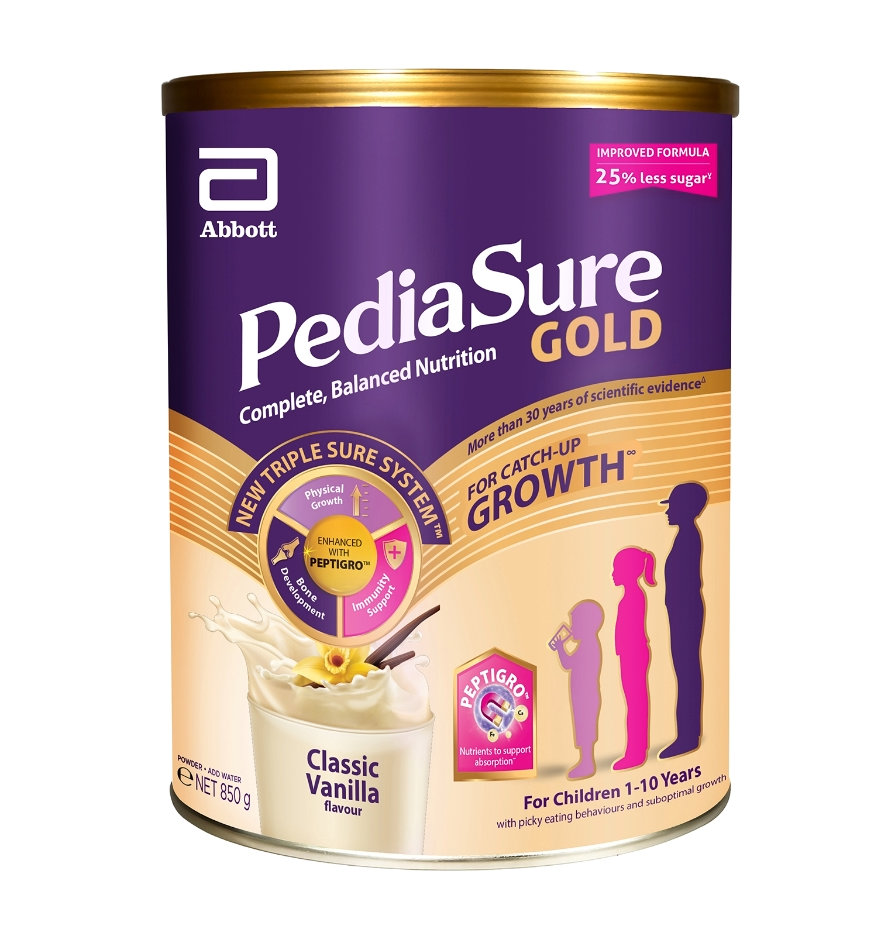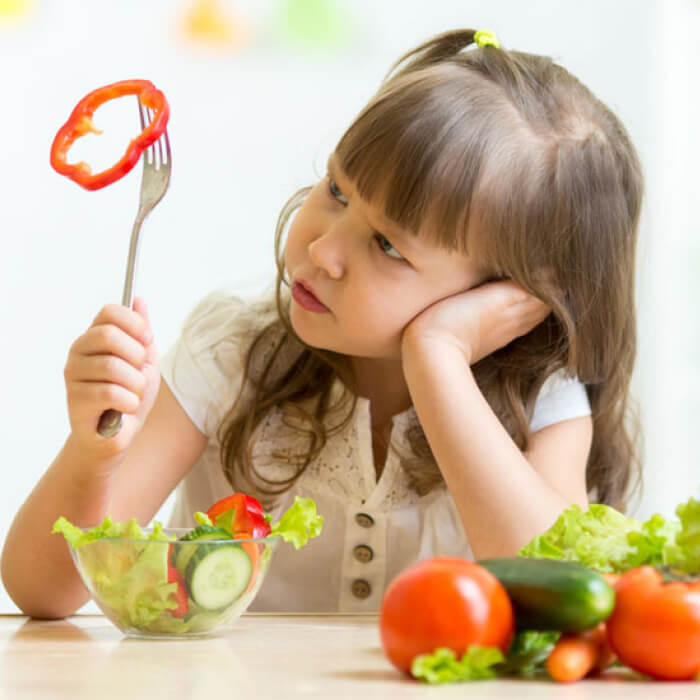Pediasure Gold
- Main Image
-

- Subtitle
- 1-10 Years Old
- Title
- PediaSure® Gold Vanilla
- Detail Page Path
If a child is growing slowly or is small for his age, nutritious meals are often a good place to start, but that might not be enough. Some children are picky eaters and simply do not have the eating habits to ensure that they are receiving sufficient nutrition they need at mealtimes. Thus, healthy snacks for kids can help provide nutrients that support optimal growth, especially when it comes to protein.
Jennifer Williams, Masters in Public Health, pediatric nutrition researcher with Abbott, explains that protein supplies the raw materials growing bodies need to build cells, tissues, muscles and bones. Sufficient daily protein intake also plays an important role in the metabolism of other nutrients, the formation of red blood cells and strengthening of the immune system1.
A study conducted among healthy 3 – 7 years old children in China, found that over half the children displayed picky eating behaviors which were negatively associated with growth. These children were found to consume less protein intake compared with peers who were normal eaters2.
Back in Singapore, 1 in 2 parents identify their children as picky eaters, and picky eating is first noticed as early as 1 year old3. According to the Recommended Dietary Allowances by the Health Promotion Board, children 1 – 3 years old require approximately 22 grams of protein a day and this daily target jumps to approximately 30 grams for children between the ages of four to eight4.
If you’re concerned about your child’s growth, be sure to speak to your pediatrician for additional guidance.
So, how do snacks fit into the picture?
Health Promotion Board reported that unhealthy eating practices is one of the health concerns faced by children in Singapore. While snacking allows the body to maintain blood glucose levels at equilibrium, excessive snacking can be bad for your child5. It has also cautioned against using food as a reward or punishment as it may result in the child having an increased desire to consume or avoid certain food6.
In fact, a snack should be nutritious and substantial enough to keep your child full between meals, but not so large or high in calories that it interferes with mealtime appetite.
For healthy inspiration, try these tasty, protein-packed PediaSure snacks for kids7.
References:
1 Abbott Nutrition News. (2018, 1 August). Abbott. Retrieved from https://www.nutritionnews.abbott/pregnancy-childhood/infant-toddler/why-kids-need-healthy-protein-snacks/
2 Xue, Y., Zhao, A., Cai, L., Yang, B., Szeto, I., Ma, D., Zhang, Y. & Wang, P. (2015, 13 April). Growth and Development in Chinese Pre- Schoolers with Picky Eating Behaviour: A Cross-Sectional Study. PLOS ONE. DOI:10.1371/journal.pone.0123664
3 Goh DY, Jacob A. Perception of picky eating among children in Singapore and its impact on caregivers: a questionnaire survey. Asia Pac Fam Med. 2012 Jul 20;11(1):5. doi: 10.1186/1447-056X-11-5. PMID: 22816553; PMCID: PMC3477031.
4 Health Hub. (2018, 29 January). Health Promotion Board. Retrieved from https://www.healthhub.sg/live-healthy/192/recommended_dietary_allowances
5 Singapore’s Child. (2016, 10 August). Food & Health. Retrieved from http://singaporeschild.com.sg/does-your-child-have-bad-eating-habits/
6 Health Hub. (2018, 3 October). Health Promotion Board. Retrieved from https://www.healthhub.sg/live-healthy/1264/growing-kid-raising-healthy-kids
7 PediaSure Recipes. (2019, 6 February). Abbott Family. Retrieved from https://abbottfamily.com.sg/pediasure-recipes
ASG.2022.28302.PDS.1 (v1.0)

Puberty begins in early adolescence, marking the start of a period of tremendous physical changes.

Parents can help set up their adolescent child for a healthy life and take advantage of the last major growth spurt through good nutrition.

To keep abreast on your child's development, here's a guide on what you need to know to monitor his/ her growth. alt="article"

Is your child a fussy eater? Read on to find out. Here are some tips and tricks to help your child get well balanced nutrition.
You are about to exit for another Abbott country or region specific website.
Please be aware that the website you have requested is intended for the residents of a particular country or region, as noted on that site. As a result, the site may contain information on pharmaceuticals, medical devices and other products or uses of those products that are not approved in other countries or regions.
The website you have requested also may not be optimized for your specific screen size.
Do you wish to continue and exit this website?